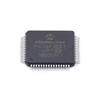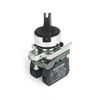What is a sensor? You may have heard the term “sensor” before. It’s part of your computer or phone that detects changes in temperature, pressure, light, sound, and motion. Sensors are used by engineers to measure physical variables and make decisions based on those measurements.
Sensors are also used in science experiments as tools for measuring physical properties, such as temperature and pressure. Scientists can use sensors to detect chemical reactions or track the movement of particles in a gas sample.
What Is A Sensor? (And Why You Should Care)
What is a sensor? A sensor is a device that takes a measurement of some physical characteristic or changes its state in response to physical or chemical factors. A sensor can be an analog sensor, which uses an electrical signal to measure a physical property; or a digital sensor, which is able to take a digital signal and convert it into an analog value.
Sensors are widely used for many applications. For example, temperature sensors are used in refrigerators and air conditioners to control the temperature of the room. They are also used in industrial applications such as furnace temperature controls and industrial process control. Pressure sensors are used in various industrial processes like metallurgy and petroleum refining to monitor pressure levels inside equipment or tanks.
One of the most common types of sensors is the thermistor. This type of sensor is made up of two metal leads that extend from one end of the sensor’s body. The other end has connections for connecting it to other electronic devices such as computers or other sensors within a system (like temperature sensors).
What Is A Sensor And Why It Should Be On Your Watch
A sensor is a device that converts mechanical energy into electrical signals, which are then processed and transmitted by the watch’s microcontroller.
A sensor measures the distance of a movement and sends it to the microcontroller. The microcontroller then processes this information and sends it to the watch’s display.
There are many types of sensors available on the market today. Some sensors use light or sound waves, while others use infrared rays or magnetic fields. Some sensors are very precise while others are more general purpose.
How Sensors Work & Why Have They Changed The World?
Sensors are used in almost every industry to sense and measure the world around us. There are sensors used in manufacturing, agriculture, construction, transportation, utilities, and many other industries. They are used to detect motion, temperature, and vibration.
Sensors are also used in medical devices such as heart rate monitors and blood pressure monitors. Other medical devices include stethoscopes which record sounds made by the patient’s heart or lungs.

Sensors can be found in almost every home appliance today like your washing machine and refrigerator. They allow you to adjust settings without having to go through a complicated setup process. These are just a few examples of how sensors have changed the world over the years!
What Is The Difference Between a Sensor, Thermometer & Thermostat?
A sensor is an electronic device that converts a physical quantity (for example, pressure, temperature, or flow) into an electrical signal. The signal is then used to control the operation of a piece of equipment, such as a door lock or vending machine.
A thermometer measures temperature and converts it into a Celsius or Fahrenheit reading. A thermometer is also used to measure the heat generated by certain types of cooking appliances and industrial processes.
A thermostat controls the temperature in a home or office by turning on/off furnaces, boilers, or air conditioners based on preset temperatures set by you via remote control.
Could People Live Without Sensors?
With the rapid development of society, people have become more and more dependent on sensors. Many of these are made by EasyIEE, which has been providing quality sensors to customers worldwide for many years.
People may think that they could live without sensors, but it is impossible. People would not be able to do certain things without sensors. For example, some people may think that they can live without security cameras, but there are many ways that someone could break in without cameras and put themselves at risk for crime.
Sensors are also used in everyday life such as in cars and medical equipment. The world has become a much more dangerous place since we started relying on technology to help us out when it comes to safety and security.
Data Sensors That Are Better Than You Think
Data sensors are everywhere. They’re in your car, your phone, and your computer. They can also be found in medical devices, factory equipment, and even homes.
Data sensors have become a critical part of our lives, but they’re not just for measuring things around us. Data sensors are becoming more advanced every day thanks to the digital revolution we’re experiencing.
The best data sensor companies such as EASYIEE Sensor Supplier are always looking for ways to improve their products so they can create better solutions for our everyday lives. This means that they’re constantly working on new technologies that will be able to detect different types of data and translate them into something useful.
When a Sensor Fails, How Do You Handle It?
If the sensor fails, you can handle this by following these steps:
1. Record the error code and description in the field provided.
2. Contact your local dealer or distributor for assistance.
3. If you have any questions about sensor solutions, please contact EASYIEE.
Concluding Remarks
A sensor is a device that measures and interprets physical properties or processes. For example, the interior temperature of a car can be measured using a thermistor. A pressure sensor will detect changes in pressure, such as when you open a door. Sensors are used in many applications, including medical diagnostics, security systems, industrial automation, and robotics. The type of sensor you use depends on your application and the type of input it requires.





 2023-03-06
2023-03-06 


